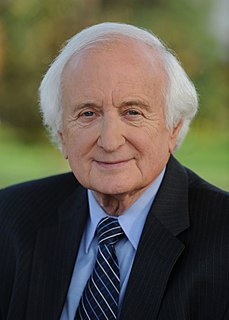A Quote by Atul Gawande
We now have 30 percent, for example, of Medicare patients who are seeing doctors who are rewarded for doing this kind of work, like high blood pressure control. So, the Affordable Care Act has pushed this direction down the road.
Related Quotes
Go back to the '30s, '40s, '50s, and it was the discovery of heroic interventions, the ability to cure people with penicillin or do an operation to stop disease that was what saved the day. Primary care physicians couldn't do all that much that really demonstrated a difference. The people who control and work with you to control your blood pressure, they're not rewarded for doing that or to be innovative about doing that. So, the result is half of Americans have uncontrolled high blood pressure, despite seeing clinicians.
A central notion in the Affordable Care Act was we had an inefficient system with a lot of waste that didn't also deliver the kind of quality that was needed that often put health care providers in a box where they wanted to do better for their patients, but financial incentives were skewed the other way... We don't need to reinvent the wheel; you're already figuring out what works to reduce infections in hospitals or help patients with complicated needs.
Safe care saves lives and saves money. Adverse events like high levels of infection, blood clots or falls in hospital, emergency readmissions and pressure sores cost the NHS billions of pounds every year. There is a serious human cost, too, with patients ending up injured, or even dead. Most are avoidable with the right care.
The supportive care that we're able to provide in the United States is so much better, so much more sophisticated, than what's available in West Africa. ... So we can move that needle of survival way down. Even Doctors Without Borders in West Africa are moving the fatality rate from 50 percent down to 30 percent-I bet we can do substantially better than that here.
The less control people had over their work, the higher their blood pressure during work hours. Moreover, blood pressure at home was unrelated to the level of job control, indicating that the spike during work hours was specifically caused by lack of choice on the job. People with little control over their work also experienced more back pain, missed more days of work due to illness in general, and had higher rates of mental illness-the human equivalent of stereotypies, resulting in the decreased quality of life common to animals reared in captivity.

































